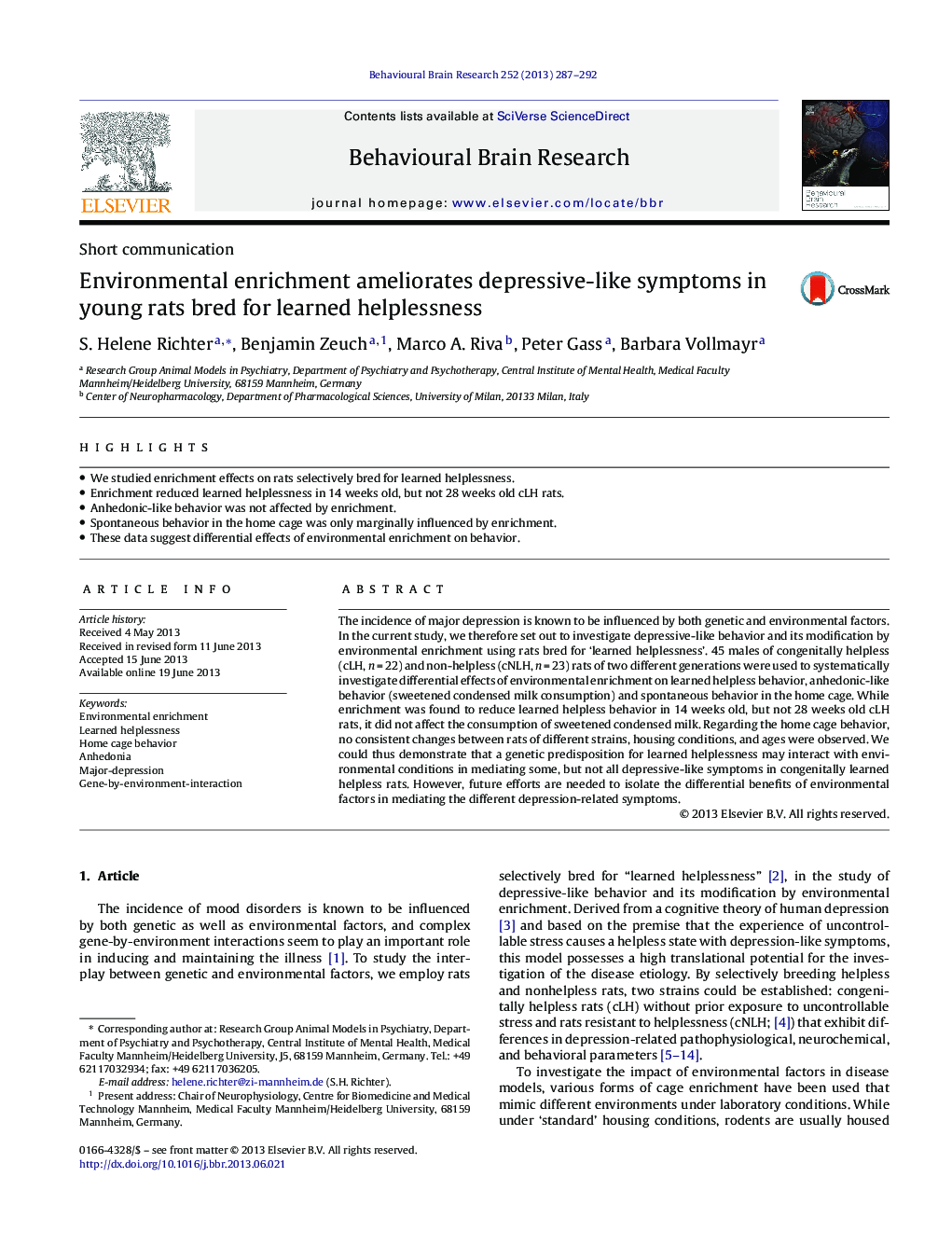| Article ID | Journal | Published Year | Pages | File Type |
|---|---|---|---|---|
| 4312641 | Behavioural Brain Research | 2013 | 6 Pages |
•We studied enrichment effects on rats selectively bred for learned helplessness.•Enrichment reduced learned helplessness in 14 weeks old, but not 28 weeks old cLH rats.•Anhedonic-like behavior was not affected by enrichment.•Spontaneous behavior in the home cage was only marginally influenced by enrichment.•These data suggest differential effects of environmental enrichment on behavior.
The incidence of major depression is known to be influenced by both genetic and environmental factors. In the current study, we therefore set out to investigate depressive-like behavior and its modification by environmental enrichment using rats bred for ‘learned helplessness’. 45 males of congenitally helpless (cLH, n = 22) and non-helpless (cNLH, n = 23) rats of two different generations were used to systematically investigate differential effects of environmental enrichment on learned helpless behavior, anhedonic-like behavior (sweetened condensed milk consumption) and spontaneous behavior in the home cage. While enrichment was found to reduce learned helpless behavior in 14 weeks old, but not 28 weeks old cLH rats, it did not affect the consumption of sweetened condensed milk. Regarding the home cage behavior, no consistent changes between rats of different strains, housing conditions, and ages were observed. We could thus demonstrate that a genetic predisposition for learned helplessness may interact with environmental conditions in mediating some, but not all depressive-like symptoms in congenitally learned helpless rats. However, future efforts are needed to isolate the differential benefits of environmental factors in mediating the different depression-related symptoms.
